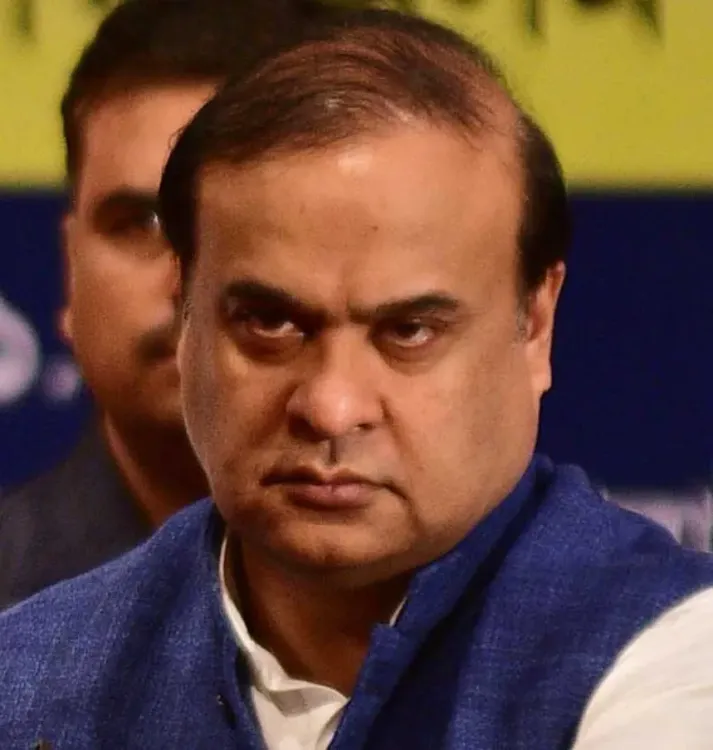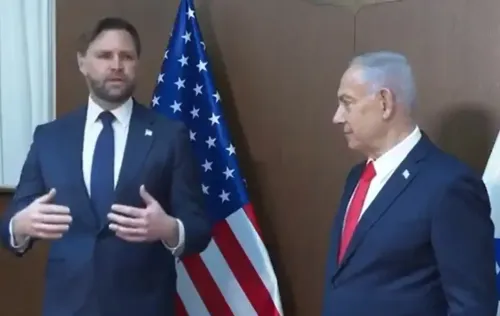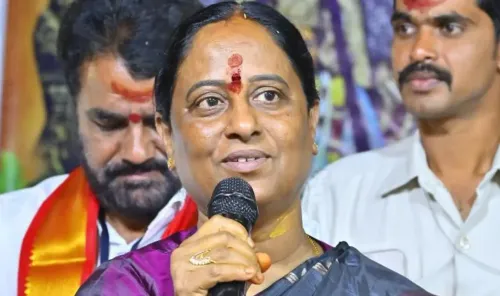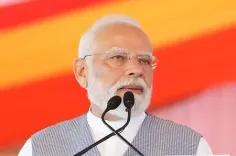Is ‘New India’ Set to Eradicate Terrorists from Their Sanctuaries?

Synopsis
Key Takeaways
- Operation Sindoor represents a proactive approach by ‘New India’ towards terrorism.
- Assam CM Himanta Biswa Sarma emphasizes the importance of military action in addressing security threats.
- Critique of past political decisions underscores the need for strategic foresight.
- The creation of Bangladesh is viewed as a missed opportunity for India.
- Concerns regarding the treatment of minorities in Bangladesh highlight ongoing regional issues.
Guwahati, May 11 (NationPress) Assam Chief Minister Himanta Biswa Sarma stated on Sunday that Operation Sindoor exemplifies how ‘New India’ is resolute in its mission to track and eliminate terrorists wherever they seek refuge.
He commended the armed forces for their effective neutralization of terrorists and their strategic strikes on significant military and terror infrastructures in Pakistan during the operation.
"Having observed the outstanding briefing by our DGMOs recently, we are incredibly thankful for the exceptional leadership of Hon'ble Prime Minister Shri @narendramodi Ji and our courageous Armed Forces," Sarma expressed in a post on X.
He added that irrefutable evidence shows that Operation Sindoor has successfully eliminated over 100 Pakistani terrorists and inflicted damage on crucial military and terror assets of the adversary.
"Most importantly, it delivered a powerful message that ‘New India’ will pursue terrorists to the farthest corners of the earth and eradicate them, regardless of whether they hide on land, in the air, or at sea," Sarma emphasized.
Earlier, Sarma criticized former Prime Minister Indira Gandhi, accusing her of ineffectively managing the aftermath of Bangladesh’s formation following India’s pivotal 1971 victory over Pakistan.
Sarma contended that the political leadership at that time missed a “historic opportunity” during such a critical juncture. His comments came in response to Congress leaders' critiques of Prime Minister Narendra Modi, following remarks from U.S. President Donald Trump that India and Pakistan had reached a “full and immediate” understanding after U.S. mediation.
This understanding entails a cessation of all military operations - on land, air, and sea - effective immediately.
Numerous opposition figures have drawn parallels between PM Modi’s strategy and Indira Gandhi’s management of the 1971 Indo-Pak war.
Sarma's post was titled ‘The Myth of Bangladesh's Creation: A Strategic Triumph, A Diplomatic Folly’.
“India's 1971 military victory was decisive and historic. It dismantled Pakistan into two parts and led to the creation of Bangladesh. However, while our forces achieved remarkable success on the battlefield, India's political leadership failed to secure enduring strategic advantages,” he remarked.
He asserted that the formation of Bangladesh is often celebrated as a diplomatic victory, yet history reflects a contrasting narrative.
“India’s military success in 1971 lacked strategic foresight. What could have fostered a new regional order was reduced to a one-sided act of goodwill. Had Mrs. Indira Gandhi been present today, she would have faced scrutiny for mishandling the decisive victory achieved by our armed forces. The establishment of Bangladesh was not a compromise; it was a historical opportunity squandered,” Sarma pointed out.
He presented six arguments to back up his claim, stating that the creation of Bangladesh was a promise of secularism, yet it has transformed into an ‘Islamic reality’.
“India envisioned a secular Bangladesh. Yet by 1988, Islam was declared the state religion. Today, political Islam flourishes in Dhaka, undermining the very principles India aimed to uphold,” he remarked.
Addressing the alleged persecution of Hindus in the neighboring country, Sarma noted that the minority community once constituted 20 percent of Bangladesh's populace, but that number has now plummeted to under 8 percent due to 'systematic discrimination and violence', which has continued and become a "shameful reality that India has largely overlooked."









